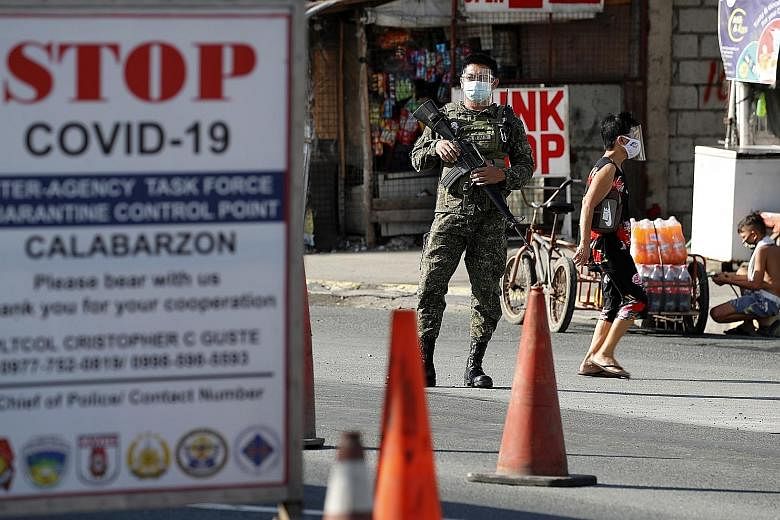The Philippines is again shutting down all churches and prohibiting indoor dining and leisure travel out of Metro Manila and four nearby provinces as it battles an even worse outbreak of Covid-19 infections compared with a year ago.
The Health Ministry yesterday reported 8,019 new infections, another record high. The daily total had been more than 7,000 for four days in a row.
With about 671,800 cases and nearly 13,000 deaths, the Philippines has the second-worst outbreak in South-east Asia, after Indonesia.
What concerns data experts is that the number of active cases is also spiking. It now stands at 80,970, the second-highest since last year. That suggests there are more people getting sick than those recovering.
Around half of the active cases are in Metro Manila - home to some 13 million people.
If the virus' spread remains unchecked, some 150 hospitals in Metro Manila may no longer have any beds available by April 4.
Already, 30 hospitals said nine in 10 of their beds were occupied, while another 22 reported a 70 per cent to 80 per cent occupancy rate.
Health officials say the surge is being fuelled by at least four new, more transmissible variants of the coronavirus.
Many people had also let their guard down when the government began easing curbs last year to revive a stalled economy. They ventured outside more often to visit families and friends, dined in restaurants, and gathered in bigger groups inside malls, churches, gyms and other public spaces.
Dr Rabindra Abeyasinghe, the World Health Organisation's representative in the Philippines, said there might also have been a "false sense of security" after the inoculation drive started last month.
The government on Sunday imposed more restrictions around Metro Manila. Churches were closed, and restaurants were limited to outdoor dining as well as deliveries and take-outs.
Companies were told to limit on-site staff to between 30 per cent and half of their workforce.
Leisure travel out of Metro Manila and the provinces of Laguna, Cavite, Rizal and Bulacan has been banned.
The government has already shut down cinemas, gaming arcades, museums, public libraries and driving schools, and imposed a curfew across Metro Manila.
Some districts have been placed on a days-long "hard lockdown". Residents are barred from leaving their homes, even to go out for work or to buy groceries.
All these curbs will be in place until April 4, which is Easter Sunday, overlapping with Holy Week celebrations that in the past saw millions leaving Metro Manila to visit their families or vacation in the provinces or abroad. The Catholic Church has already scrapped Holy Week events in some big dioceses as it suffers a wave of infections among its priests and bishops.
The government is hoping these curbs will lead to a 25 per cent drop in infections next month.

